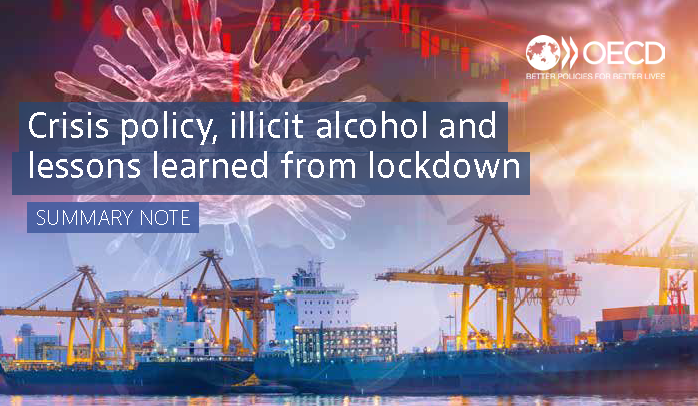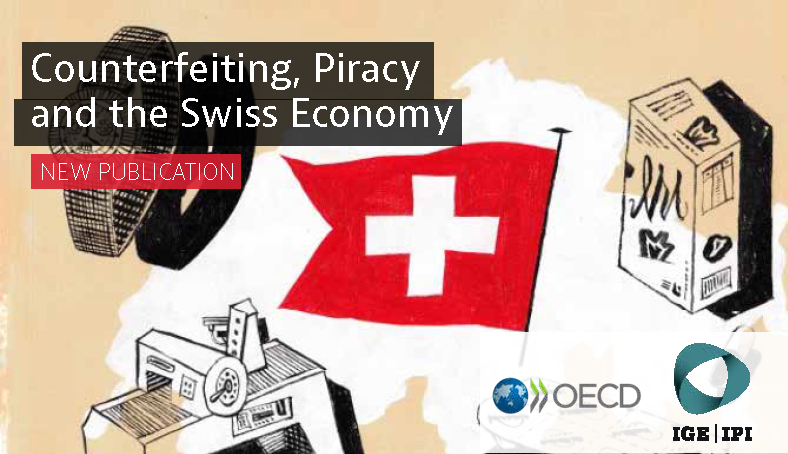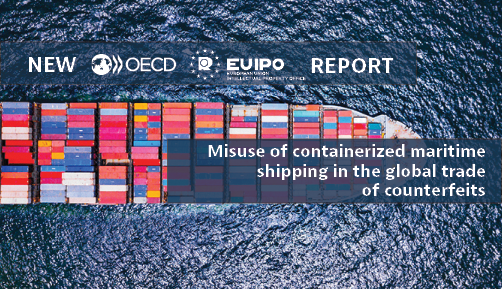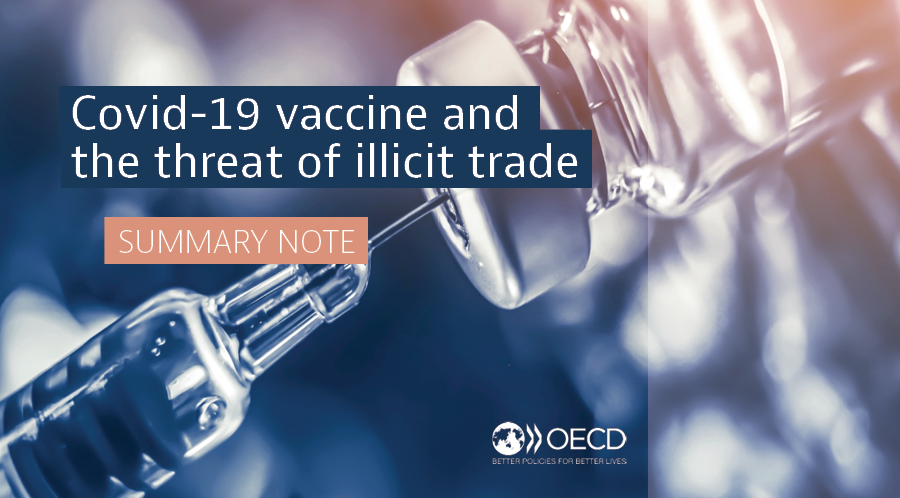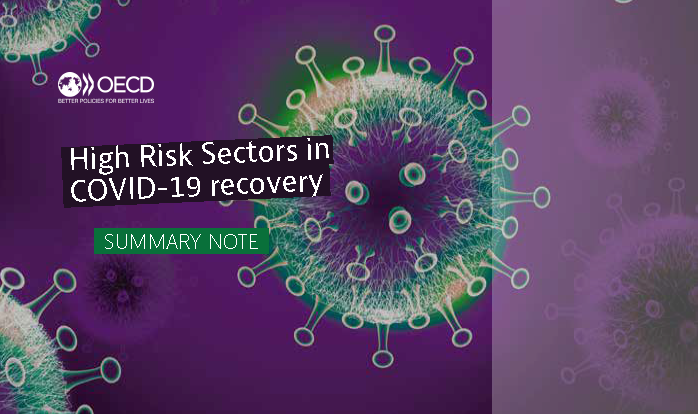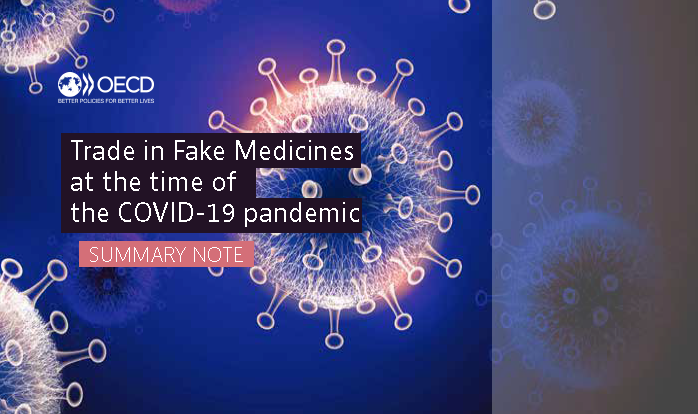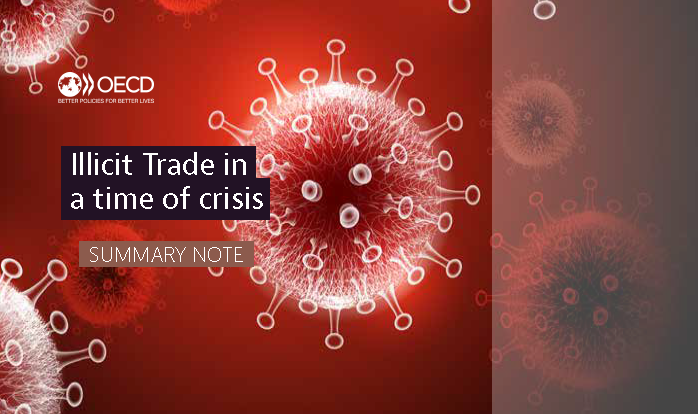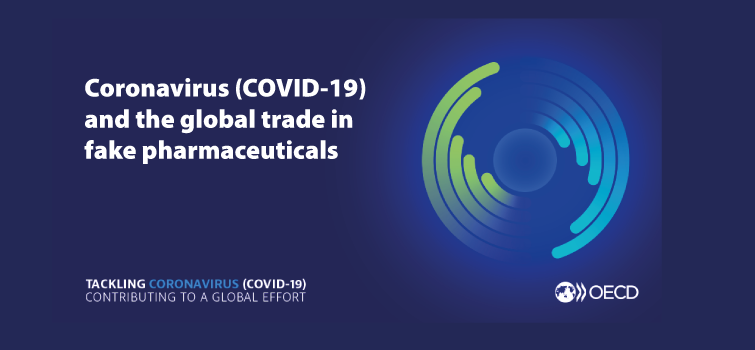Illicit trade
Task Force on Countering Illicit Trade (TF-CIT)
The OECD Task Force on Countering Illicit Trade (TF-CIT) works with governments to better understand the full range of complex risks and threats posed to our global economies.
The TF-CIT focuses on evidence-based research and advanced analytics to assist policy-makers map and understand the market vulnerabilities exploited and created by illicit trade.
Enhancing transparency on Free Trade Zones
Free Trade Zones (FTZs) facilitate trade by offering businesses advantageous tariffs and lighter regulation on financing, ownership, labour and immigration, and taxes. However, OECD evidence shows that the gains from reduced customs presence in FTZs can offer opportunities for illicit trade. There is a risk that, without additional transparency and oversight, the economic benefits from FTZs could be jeopardized.
To address this issue, the OECD has designed the “Recommendation of the Council on Countering Illicit Trade: Enhancing Transparency in Free Trade Zones." The Recommendation includes a Code of Conduct for Clean Free Trade Zones. The TF-CIT, has designed a mechanism for assessing the performance and the compliance of the FTZs with the Code of Conduct included in the Recommendation, in close consultation with numerous stakeholders, including experts from the Testing, Inspection and Certification (TIC) Council.
The mechanism is structured in two parts: (i) a Certification Scheme that sets out the scope of audit and processes for the conduct of the audit and certification and (ii) a Process and Criteria for the Selection of Certification Bodies. While the OECD will remain the author and owner of the Certification Scheme, the certification process will be carried out by external certification bodies selected by Adherents to the Recommendation.
E-commerce
E-commerce is a modern and flexible solution for consumers and businesses. The COVID-19 crisis accelerated an expansion of e-commerce, but also increased the abuse of e-commerce platforms by criminals running illicit trade networks.
Reports
Misuse of containerized maritime transport
Traffickers continue to use all available modes of transport for illicit trade. OECD evidence indicates a larger number of individual seizures in small shipments (through air-travel and road transport); however, seizures from commercial maritime container shipping continue to dominate in terms of volume and value of goods seized.
A factual report prepared by the TF-CIT, together with the EUIPO provides empirical evidence about the abuse of container ships in international trade in counterfeits. It also suggest the main routes of trade with containers polluted with illicit trade. Finally, the report outlines the economic landscape for containerized maritime transport and investigates policy gaps that enable its misuse by criminals in illicit trade, and about the governance and economic drivers and policy gaps that enable them.
Wildlife trafficking
The TF-CIT developed a set of original quantitative exercises that sheds additional information on the ways trade routes of wildlife trafficking are shaped, and on related governance gaps that enable them.
Trade in counterfeit and pirated goods
Counterfeiting is a significant risk for knowledge-based, open & globalized economies, and illicit in counterfeit goods is a very dynamic and constantly changing phenomenon. Continuous measurement efforts are needed to monitor this risk. To provide policymakers with substantial empirical evidence for taking action against this threat, the OECD and the EU Intellectual Property Office (EUIPO) joined forces to gauge this threat in a rigorous, analytical way.
We also enhance country-specific evidence on the damagind impact of counterfeiting on innovative, knowledge-based economies. Our quantitative studies examine the impact of the imports of fake products to a country and the impact of the global trade in counterfeit products that infringe on innovative companies' IP rights based in the analyzed country.
- Trade in Counterfeit Goods and the Italian Economy - 2021 update, also available in Italian
- Counterfeiting, Piracy and the Swiss Economy
Illicit trade in dangerous goods
Illicit trade in counterfeit and substandard goods causes not only economic damage, but also poses additional risks to citizens, including health and safety risk. risks. These challenges become even more significant with the COVID-19 pandemic, which opens new opportunities for profits for criminals running illicit trade networks. The OECD Task Force on Countering Illicit Trade has been actively gauging these risks, and scoping relevant policy replies.
